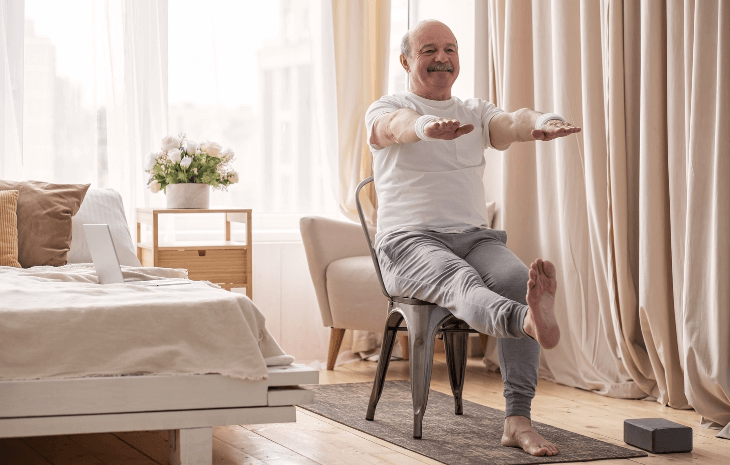Looking for ways to boost your mental well-being? Look no further! Therapeutic activities such as positive psychology exercises and cognitive behavioral therapy are the secret sauce to achieving a healthier mind. Whether you’re dealing with stress, anxiety, or other mental health issues, engaging in these activities, whether through group therapy sessions or cognitive therapy, can work wonders.
Picture this: group therapy sessions, where you can express yourself freely and experience the mental health benefits of cognitive behavioral therapy. That’s exactly what therapeutic activities, including cognitive therapy, provide. They offer a positive space for emotions to flow and be understood. Imagine the relief of releasing pent-up tension through creative expression or finding solace in mindfulness exercises.
The benefits of positive psychology exercises, cognitive behavioral therapy, and cognitive therapy are not just hearsay; studies show that these therapeutic activities have a significant impact on mental health conditions. So why wait? Let’s dive into the world of mental health activities, including group therapy sessions, and discover how they can transform your well-being.
Ready to embark on this journey towards improved mental health? Let’s explore the incredible power of group therapy sessions, cognitive behavioral therapy, cognitive therapy, and positive psychology together!
Art Therapy: Exploring Creativity
Art therapy is a powerful intervention that allows patients to express themselves through various art forms. Whether it’s painting, drawing, or creating sculptures, engaging in art therapy can have numerous benefits for participants’ mental health and overall well-being.
One of the key advantages of art therapy is its ability to enhance problem-solving skills and mental health benefits. When individuals engage in artistic activities, they are encouraged to think outside the box and explore different perspectives, which can help with mental health issues. This creative process stimulates the brain and helps develop innovative problem-solving strategies that can be applied to real-life situations and thinking. By allowing the mind to explore new possibilities through art, individuals can gain valuable insights into their own thoughts and emotions.
Creating art, such as drawing or painting, promotes relaxation and reduces emotional distress. The act of focusing on a specific task, like sculpting, can divert attention from stressors and provide calmness. The repetitive motions involved in art-making induce a meditative state, similar to practicing mindfulness techniques. This relaxation response not only alleviates anxiety but also improves overall mental well-being. Cognitive behavioral therapy and group therapy activities can also be helpful in improving thinking patterns and promoting mental health.
Moreover, art therapy is a powerful tool for mental health. It encourages self-discovery and boosts self-esteem, providing numerous mental health benefits. By engaging in artistic activities, individuals can explore their inner thoughts and emotions without judgment, addressing any mental health issues or disorders they may be experiencing. Each stroke of paint or pencil becomes a reflection of their unique experiences and feelings, fostering self-awareness and allowing for deeper insights into their own identities.
For patients struggling with mental health issues, engaging in art therapy intervention can be particularly beneficial. Art provides an outlet for expression when words may fail us. It offers a safe space where emotions can be visually represented without fear of judgment or misunderstanding. Patients who may find it difficult to articulate their feelings verbally often find help in expressing themselves through visual mediums.
Art therapy is a versatile method for improving mental health activities. It benefits participants of all ages, including young children and older adults. Through drawing and other forms of art, patients can express complex emotions that are difficult to articulate verbally. For instance, a simple image like a labyrinth can symbolize life’s challenges, while a circle can represent unity and wholeness. The possibilities for self-expression in art therapy are endless.
Music Therapy: Healing Through Harmonious Sounds
Music therapy is a powerful intervention that harnesses the healing potential of music to improve mental health in patients. It goes beyond simple enjoyment and taps into the profound impact that music can have on our emotional well-being. Whether it’s listening to our favorite tunes or actively participating in music therapy sessions, the heart of this therapeutic approach lies in its ability to evoke positive emotions and memories for participants.
Listening to music is a powerful mental health activity that can help address mental health issues. Music has the ability to transport participants to different times and places, evoking a range of emotions. This emotional connection is central to music therapy interventions, allowing individuals to explore their innermost thoughts and experiences. Engaging with music that resonates personally provides solace, comfort, and a sense of belonging.
In addition to its emotional benefits, participating in music therapy sessions can also enhance communication skills for people with mental health issues. Music has a unique way of breaking down barriers and facilitating expression when words fail us. Through musical improvisation or group activities such as drum circles or choir singing, participants can communicate non-verbally and connect with others on a deeper level. This fosters social interaction and helps build vital communication skills that extend beyond the therapy session.
One of the most significant advantages of music therapy is its ability to help people cope with stress. In today’s fast-paced world, stress levels are often high, taking a toll on our mental health. Engaging in therapeutic activities centered around music provides an intervention for releasing tension and finding inner peace. The soothing melodies or rhythmic beats can create a calming effect on both mind and body, promoting relaxation and reducing anxiety for participants.
Moreover, music therapy promotes emotional well-being by encouraging self-expression in individuals with mental health issues. It allows participants to explore their emotions freely through songwriting or creating personalized playlists that reflect their current state of mind. This intervention not only helps children gain insight into their own feelings but also provides a safe space for emotional release and self-reflection.

Nature Therapy: Connecting with the Outdoors
Spending time in nature is not only a great way to escape the hustle and bustle of daily life, but it also has numerous therapeutic benefits for mental health. Whether it’s participating in group therapy activities, practicing cognitive behavioral therapy, or attending group therapy sessions, connecting with nature can have a profound impact on people’s well-being.
Improving Mood and Reducing Symptoms of Depression
Nature has a remarkable ability to help people with mental health issues. Research has shown that spending time outdoors can significantly reduce symptoms of depression and anxiety. The sights, sounds, and smells of nature have a calming effect on our minds, allowing us to escape from the stressors of everyday life. Group therapy activities can also be helpful for people dealing with mental health issues.
Imagine walking through a beautiful forest on a sunny day, with the gentle rustling of leaves and the scent of pine trees in the air. Nature therapy can help people struggling with mental health issues find calmness and tranquility. Therapists incorporate this therapy into their treatment plans, recognizing the power of nature to aid individuals.
Enhancing Overall Physical and Mental Health
Engaging in outdoor activities not only benefits our mental well-being but also improves our physical health. Nature provides ample opportunities for people to get moving and stay active. Whether it’s going for a jog along scenic trails or participating in outdoor sports like soccer or basketball, being physically active outdoors is an excellent way to boost both physical fitness and mental resilience. Outdoor activities can help participant stay active and improve their overall well-being.
Moreover, spending time in nature promotes mindfulness, which is beneficial for mental health issues. As we immerse ourselves in natural surroundings, we become more aware of our senses and attuned to the world around us. This mindfulness helps reduce anxiety levels as we let go of worries about past or future events and focus on what is happening right now. Group therapy activities involving nature can also be effective for people dealing with mental health issues.
Connecting with Nature: A Pathway to Inner Peace
Nature therapy can help improve the mental well-being of people. It is not limited to grand adventures in the wilderness; even simple activities like tending to a garden or spending time in a local park can have significant health benefits.
For people living in urban areas, creating an indoor nature retreat can be a way to bring the outdoors inside and improve mental health issues. Adding plants and greenery to your living space can create a calming atmosphere, benefitting group therapy activities and improving air quality. Incorporating natural elements such as water features or natural light into your home can help create a soothing environment for people dealing with mental health issues.
Journaling and Expressive Writing: Unleashing Emotions
Journaling and expressive writing are powerful therapeutic activities for mental health. These practices, along with group therapy, help individuals process their thoughts and emotions effectively. They provide a safe space for self-reflection, personal growth, and improved overall well-being. Words from a book can also be helpful in this process.
Processing Thoughts and Emotions
One of the key benefits of journaling is its ability to help individuals navigate their feelings. Putting pen to paper allows us to explore our innermost thoughts in a non-judgmental way. By externalizing our emotions onto the page, we gain clarity and insight into our own experiences. Whether it’s jotting down daily happenings or delving into deeper emotional issues, journaling provides an outlet for expressing ourselves freely. This book on group therapy activities can also be a helpful resource for improving mental health.
Tool for Self-Reflection and Personal Growth
Expressive writing, a helpful activity in group therapy, goes beyond documenting events. It encourages introspection and aids in understanding mental health issues. Through this process, we uncover hidden beliefs or fears and grow as individuals. A book on expressive writing can further assist in this journey.
Managing Stress Levels
The act of writing down our feelings can be immensely therapeutic when dealing with mental health issues. Research has shown that expressive writing helps reduce anxiety by allowing individuals to confront their worries head-on. It serves as an emotional release valve, enabling us to unload pent-up tension and find relief from overwhelming stressors. Group therapy activities, such as writing in a book or sharing with a partner, can enhance the therapeutic benefits even further.
Catharsis: Releasing Pent-Up Emotions
Maintaining a journal is a powerful book therapy activity for individuals dealing with mental health issues. It offers a chance for catharsis, allowing a person to release deeply held emotions. Often, we carry heavy burdens without realizing it, but through journaling, we can pour these emotions onto the pages and lighten our emotional load. This process fosters a sense of liberation and freedom.
Incorporating Therapeutic Activities Into Your Routine:
- Start by setting aside dedicated time each day or week to journal about your book, group therapy activities, and personal experiences. This could be as little as 10 minutes or as long as an hour, depending on your schedule and preferences.
- Find a quiet and comfortable space where you can focus on your thoughts without distractions. This is especially important when working through mental health issues and participating in group therapy sessions with your partner.
- Choose a writing medium, such as pen and paper or a digital platform, that resonates with you and feels most natural and accessible for your book. Whether you are writing alone or with a partner, it’s important to use a medium that suits your preferences.
- Begin by writing freely about mental health issues, books, groups, and persons. Don’t worry about grammar, punctuation, or spelling errors; the goal is to let your thoughts flow uninhibitedly.
- If you find it challenging to start taking care of your health, consider using prompts such as “How am I feeling right now?” or “What is causing me stress?” This can be helpful for a person or a group of people looking to improve their health. Additionally, these prompts can be used as a starting point for discussions or journaling in a health book.
- Experiment with different styles of journaling, such as thought records or worksheets, to help challenge negative or irrational thoughts in a book about mental health. Join a group or find a person who can provide support and guidance during this process.
- Consider exploring expressive writing through creative outlets like storytelling or creating an excellent book of your own experiences to improve your health as an individual or within a group.
Mindfulness and Meditation: Cultivating Inner Peace
Mindfulness practices and meditation are powerful therapeutic activities for mental health. By incorporating these techniques into our daily lives, a person or a group can cultivate inner peace and improve their overall well-being.
Increased Awareness of the Present Moment
One of the key benefits of mindfulness practices is their ability to increase awareness of the present moment for a person’s health. Often, our minds get caught up in a cycle of negative thinking and rumination as a group. We constantly replay past events or worry about future outcomes, which can contribute to anxiety and stress. However, by practicing mindfulness, we learn to focus on the here and now.
Through techniques such as deep breathing exercises and yoga, a person’s health can improve. By taking a moment to observe our surroundings, we become more attuned to the present moment, which benefits both our physical and mental well-being. This heightened awareness helps us break free from negative thoughts and allows us to fully experience each moment as it unfolds, whether we are alone or in a group.
Relaxation and Anxiety Reduction through Meditation
Meditation is a powerful tool for promoting mental health and well-being. By engaging in regular meditation practice, a person can foster relaxation and reduce symptoms of anxiety. During meditation sessions, individuals often focus on their breath or use guided imagery to calm their minds.
As we delve deeper into meditation, our bodies enter a state of deep relaxation, promoting both mental and physical health. Our heart rate decreases, muscle tension eases away, and our minds become more tranquil. This state of relaxation not only provides immediate relief from anxiety but also trains our minds to respond more calmly in stressful situations outside of meditation practice. Overall, meditation has a positive impact on a person’s health.
Emotional Regulation through Mindfulness Techniques
Emotional regulation is essential for a person’s mental health. Mindfulness techniques are effective in managing emotions and enhancing emotional well-being. By practicing non-judgmental awareness of our thoughts, we cultivate self-awareness.
Mindfulness also helps improve mental health by allowing a person to recognize and challenge cognitive distortions. For example, the “worry tree” technique encourages individuals to evaluate the validity of their worries, helping them reframe negative thoughts with positive and realistic ones.
Cultivating Resilience and Mental Clarity
Regular meditation practice cultivates resilience and improves mental health by training our minds to be more focused and resilient in the face of challenges. As a person becomes more adept at directing their attention, they develop mental clarity and improve their ability to stay present even during difficult times.
Through meditation, a person can strengthen their mental health by observing their thoughts without becoming overwhelmed. This allows for thoughtful responses instead of impulsive reactions. Daily meditation practice cultivates resilience and enhances overall mental well-being, giving a person greater control over their emotions.
Physical Exercise and Movement Therapy
Regular physical exercise improves the health of a person by releasing endorphins, reducing symptoms of depression, and boosting cognitive function. Engaging in movement therapy enhances body awareness and self-confidence, promoting better mental well-being. Exercise also helps improve sleep quality, reducing stress and anxiety levels.
Physical exercise has been proven to have numerous benefits for a person’s mental health. When a person engages in exercises such as jogging, swimming, or cycling, their bodies release endorphins – chemicals that act as natural painkillers and mood elevators. These endorphins interact with receptors in the brain, reducing feelings of pain while simultaneously triggering a positive feeling within the body. This release of endorphins can significantly improve a person’s mood and reduce symptoms of depression.

Movement therapy is a powerful tool for enhancing mental health. By engaging in movement activities, individuals develop body awareness and a stronger mind-body connection. Movement therapy promotes self-confidence and appreciation for what the person’s body can accomplish.
In addition to its impact on mood and self-confidence, physical activity has been shown to boost cognitive function and improve brain health. Regular exercise increases blood flow to the brain, delivering oxygen and nutrients necessary for optimal brain function. This improved blood flow can enhance memory, attention span, and overall cognitive performance in a person.
Furthermore, engaging in exercises positively affects a person’s sleep quality which plays a crucial role in maintaining good mental health. Physical activity helps regulate sleep patterns by promoting the production of melatonin – a hormone that regulates sleep-wake cycles. By establishing regular exercise routines, individuals are more likely to experience better sleep quality which reduces stress levels and decreases anxiety in a person.
To incorporate therapeutic activities into your routine effectively:
- Consider incorporating aerobic exercises such as running or dancing into your weekly schedule to improve your health. These activities can greatly benefit a person’s overall well-being.
- Explore different forms of movement therapy like yoga or tai chi that focus on body awareness and mindfulness for improved health. These practices can help a person develop a deeper connection with their body.
- Engage in activities that require full-body movements, such as swimming or martial arts, to enhance self-confidence and physical coordination. These activities are beneficial for a person’s health.
By incorporating regular exercise and movement therapy into your life, you as a person can experience the numerous mental health benefits they offer. From improved mood and self-confidence to enhanced cognitive function and better sleep quality, these therapeutic activities have the power to positively impact your overall well-being. So why not start today? Take a step towards a healthier mind and body by embracing the power of physical exercise and movement therapy as a person.
FAQs
Q1: Can therapeutic activities replace professional mental health treatment?
Therapeutic activities can complement professional mental health treatment, but they are not a substitute for it. It’s important to consult with qualified professionals who can provide personalized guidance and support tailored to your specific needs.
Q2: How often should I engage in therapeutic activities?
The frequency of engaging in therapeutic activities for good health depends on individual preferences and schedules. It is recommended to incorporate them into your routine regularly, aiming for at least a few times per week to experience the full health benefits.
Q3: Do I need any special skills or talent to participate in art therapy or music therapy?
No special skills or talent are required for art therapy or music therapy. These activities focus on self-expression and exploration rather than achieving mastery. The goal is to engage in the process and enjoy the therapeutic benefits for one’s health.
Q4: Can nature therapy be practiced indoors?
While nature therapy, which is beneficial for both mental and physical health, typically involves connecting with natural environments outdoors, it can also be adapted for indoor settings. Indoor plants, nature sounds, and simulated natural scenes can still provide some of the calming effects associated with nature therapy and contribute to overall health.
Q5: How long does it take to see results from mindfulness and meditation practices?
The timeline for experiencing results in mental health from mindfulness and meditation practices varies from person to person. Some individuals may notice immediate benefits such as increased relaxation, while others may require more consistent practice over an extended period to observe significant changes in their mental well-being.
Q6: Are there any physical limitations that may affect participation in physical exercise and movement therapy?
Physical exercise and movement therapy can be adapted to accommodate various physical limitations. It’s crucial to consult with healthcare professionals or certified trainers who can guide you through exercises suitable for your abilities and ensure safety during the process.
Q7: Are there any age restrictions for engaging in therapeutic activities?
Therapeutic activities can greatly improve the health of individuals of all ages. However, it is important to choose activities that are suitable for specific age groups. Consider individual capabilities and consult with professionals for guidance on age-appropriate therapeutic activities.
Conclusion
In conclusion, embracing therapeutic activities can have a profound impact on a person’s mental health and overall well-being. By incorporating art therapy, music therapy, nature therapy, journaling and expressive writing, mindfulness and meditation, as well as physical exercise and movement therapy into a person’s daily routine, they can experience significant improvements in their mental state.
Art therapy is a beneficial practice for mental health. It allows a person to express themselves creatively and explore their emotions. Through different art mediums, you can tap into your inner creativity and gain insights into your thoughts and feelings.
Music therapy utilizes the power of harmonious sounds to promote healing and enhance health. Whether through listening or actively participating in music-making, this therapy can reduce stress levels, improve mood, and enhance cognitive function.
Nature therapy offers an opportunity to connect with the outdoors and find solace in natural environments. Spending time in nature has been shown to improve health, reduce anxiety, lower blood pressure, and increase feelings of calmness.
Journaling and expressive writing are beneficial for mental health. They allow you to unleash emotions that may be difficult to express verbally. The act of putting pen to paper can provide clarity, release pent-up feelings, and foster self-reflection.
Mindfulness and meditation practices promote mental health by cultivating inner peace and focusing on the present moment. These techniques reduce stress, increase self-awareness, and improve overall mental resilience.
Physical exercise and movement therapy not only benefit physical health but also have positive effects on mental well-being. Engaging in regular exercise releases endorphins that boost mood while promoting relaxation and improved sleep quality.
By integrating these therapeutic activities into your life regularly, you can take proactive steps towards improving your mental health. Remember to consult with professionals or seek guidance from qualified therapists who specialize in these approaches for optimal results.
Take charge of your mental health today by embracing therapeutic activities that resonate with you. Start small by incorporating one or two health activities into your routine consistently. Over time, observe how they positively influence your mood, mindset, and overall outlook on life.



